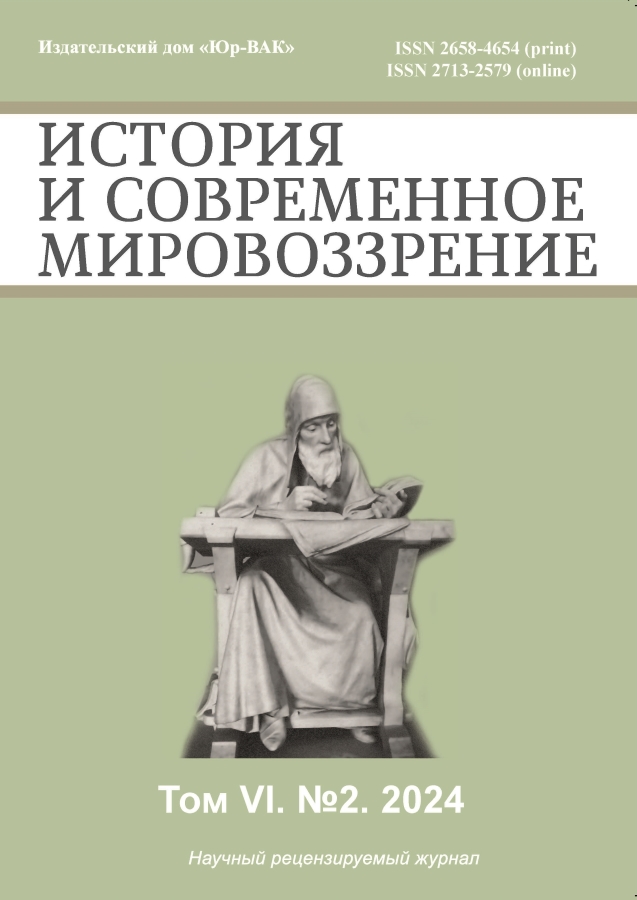Türkiye's Position in the Syrian Conflict and the Role of the Russian Federation
- Authors: Ismayilova E.1
-
Affiliations:
- Azerbaijan Technical University
- Issue: Vol 6, No 2 (2024)
- Pages: 117-125
- Section: DEBATING ISSUES OF GENERAL HISTORY AND INTERNATIONAL RELATIONS
- URL: https://journals.eco-vector.com/2658-4654/article/view/636359
- DOI: https://doi.org/10.33693/2658-4654-2024-6-2-117-125
- EDN: https://elibrary.ru/SCDUVU
- ID: 636359
Cite item
Abstract
This article aims to explore the dynamics of the relationship between Türkiye and Russia concerning the Syrian conflict, identifying areas of convergence and divergence in their interests. Given the persistent security concerns posed by the Syrian conflict, the study employs various methodologies including historical, sociological, institutional, and comparative analysis. It delves into the regional processes, each country’s stance, and their interactions in resolving the Syrian crisis. The article identifies sources of internal instability and assesses potential challenges both nations might confront in case of further escalation. Special emphasis is placed on examining the obstacles and prospects for enhancing Russian-Turkish relations in this context. The analysis reveals that despite the dismantling of the «Islamic State’s» «caliphate» in Syria, external actors remain invested in controlling occupied territories to influence conflict resolution. Geopolitical competition and regional politics emerge as key factors shaping relations between two states in the Syrian context. Nonetheless, both parties exhibit a preference for dialogue over conflict escalation in addressing emerging issues.
Keywords
Full Text
About the authors
Elmira Ismayilova
Azerbaijan Technical University
Author for correspondence.
Email: elmiraismayil@gmail.com
ORCID iD: 0000-0003-2412-5927
Doctor of Philosophy in History, Associate Professor of the Department of Humanities
Azerbaijan, BakuReferences
- Baranovsky V., Naumkin V. The Middle East in a changing global context: key trends of a century of development. World Economy and International Relations 2018. No. 62(3). pp. 5–19.
- Vakhshiteh Ahmad Nasser. The role of Russia in resolving the Syrian conflict // Izv. Sarat. University of Nov. ser. Ser. Story. International relationships. 2018. No. 4. pp. 514–522.
- Zvyagelskaya Irina Donovna, Bogacheva Anastasia Sergeevna, Davydov Alexey Andreevich, Ibragimov Ibragim Eminovich, Lazovsky Stanislav Olegovich, Samarskaya Lyudmila Maksimovna, Svistunova Irina Aleksandrovna, Surkov Nikolay Yurievich, Tyukaeva Tatyana Irshatovna. Russian policy in the Middle East. Prospects and challenges // Free Thought. 2021. No. 6 (1690).
- Kozintsev Alexander Sergeevich. The fight for the state: the Syrian crisis through the prism of center-peripheral relations // Polit. the science. 2018. No. 4.
- Manoilo A.V. The conflict in Syria and Russian foreign policy. Current problems of Europe. 2020. No. 2. pp. 145–172. doi: 10.31249/ape/2020.02.06.
- Nadein-Raevsky Victor. Turkey’s policy in the Middle East // IMEMO RAS. 2020. No. 1 (58).
- Syrian frontier, ed. M.Yu. Shepovalenko. Moscow, Center for Analysis of Strategies and Technologies, 2016. — 204 p.
- Skuratova Yu. Yu. Russia’s position in the Syrian crisis. Bulletin of Moscow University. Ser. 21. Management (state and society). 2017. No. 1. pp. 138–150.
- Khodynskaya-Golenischeva M. The Syrian crisis in a transforming world order: The role of emigrant opposition structures (2011–2015 — Syrian National Council, National Coalition) // Asia and Africa Today, 2018, No. 1. pp. 17–25.
- Demir, Ali Faik Reflections and Effects of the Syrian Crisis on Russian-Turkish Relations. Marmara Türkiyat Araştırmaları Dergisi (Marmara Journal of Turkic Studies) III. 2016. No. 2. P. 139–151. doi: 10.16985/MTAD.2016227946 (In Turkish language).
Supplementary files









